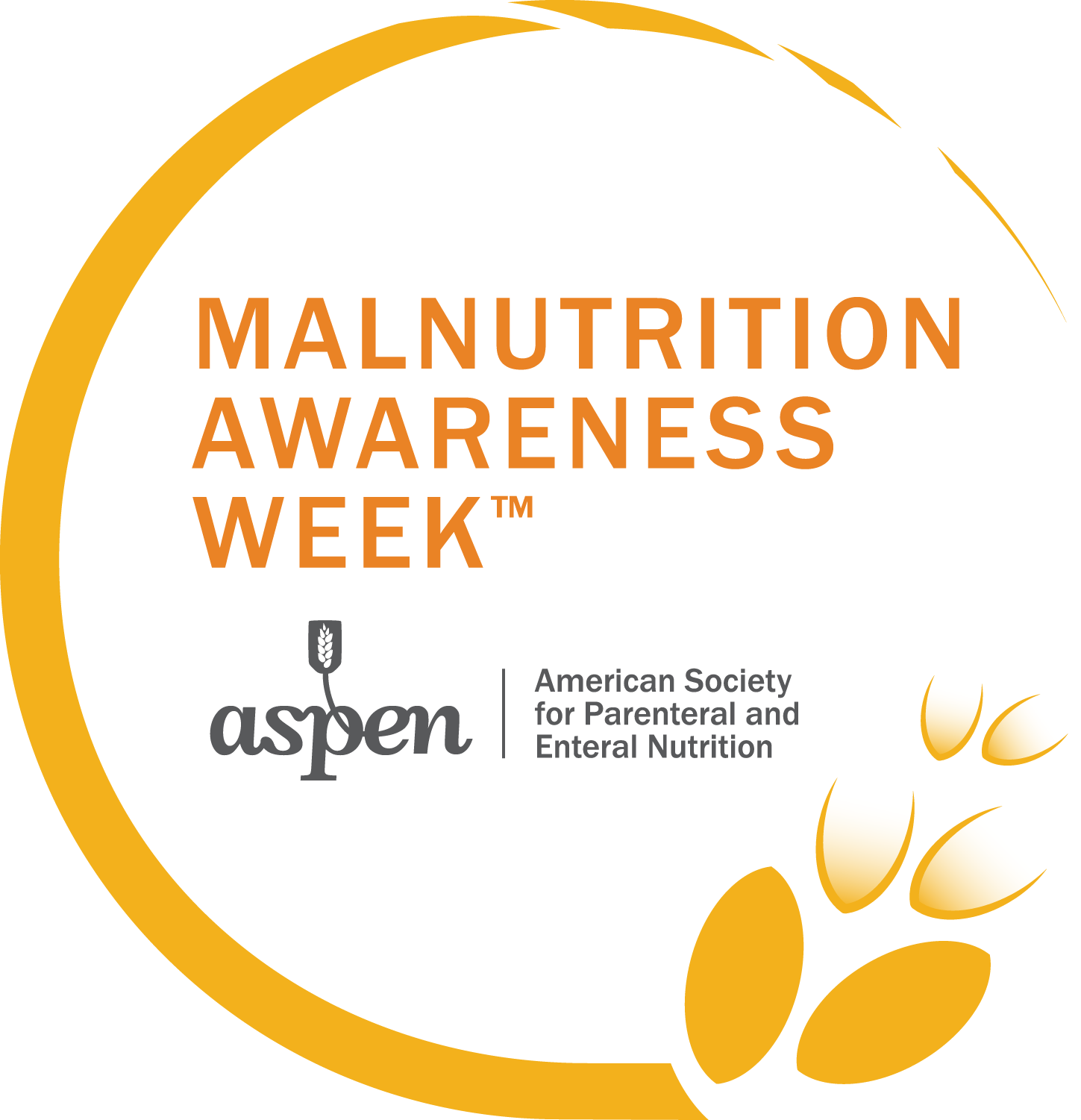September 16-20, 2024
Led by the American Society for Parenteral and Enteral Nutrition (ASPEN), Malnutrition Awareness WeekTM is a campaign to educate professionals and consumers about detecting and treating malnutrition, a condition that is more common and has a greater impact as we age.
Mal nutrition is caused by not getting enough nutrients from foods. What we eat and drink — and how we absorb nutrients — affects all aspects of our bodies. If we don’t meet our nutritional needs, our physical and mental health and overall quality of life can suffer. It’s more common than many realize and often goes unrecognized. Anyone, at any age, can experience malnutrition, but the risk and impact of malnutrition grow with age, increasing the likelihood of falling, depression, cognitive decline, and chronic health conditions for older adults.
nutrition is caused by not getting enough nutrients from foods. What we eat and drink — and how we absorb nutrients — affects all aspects of our bodies. If we don’t meet our nutritional needs, our physical and mental health and overall quality of life can suffer. It’s more common than many realize and often goes unrecognized. Anyone, at any age, can experience malnutrition, but the risk and impact of malnutrition grow with age, increasing the likelihood of falling, depression, cognitive decline, and chronic health conditions for older adults.
The aging network is critical in identifying at-risk older adults and providing services to prevent and reduce malnutrition and its negative impacts.
Preventing and Addressing Malnutrition
Older Americans Act (OAA) nutrition services aim to reduce hunger, food insecurity, and malnutrition; promote socialization; and promote the health and well-being of older adults. ACL’s Senior Nutrition Program funds local providers who serve home-delivered and congregate meals in communities across the country. These balanced meals meet the science-based recommendations for nutrients needed by older adults as they age. Meals are often tailored to meet cultural and dietary preferences and, when provided in a congregate setting, combat social isolation and loneliness. For some older adults, these meals are the only ones they have each day.
OAA-funded nutrition services also screen for malnutrition, deliver nutrition education and nutrition counseling, and connect older adults to support services and evidence-based health promotion programs that help them maintain their overall health and independence. Senior nutrition programs are a critical link between communities and nutritious meals, and the Community Preventive Services Task Force recommends home-delivered and congregate meals to reduce malnutrition.
Resources from ACL’s Nutrition and Aging Resource Center
- Malnutrition Resources Webpage
- Malnutrition Screening Practices Quick Guide
- Malnutrition Learning Collaborative State Resources
- Aging Network's Role in Identifying Malnutrition and Abuse
- Innovations in Nutrition: Malnutrition Capstone Projects
Observance Resources from ASPEN
We all can help fight malnutrition. Join us in spreading the word about the importance of nutrition services available through OAA-funded senior nutrition programs. For more information, visit the Nutrition and Aging Resource Center, and to find a local program, visit the Eldercare Locator.

